China ends quarantine requirements for overseas travelers
China has officially scrapped its quarantine requirements for inbound travelers after nearly three years, despite struggling with a nationwide surge of COVID-19 cases.
All travelers, however, are still required to test negative for the novel coronavirus within 48 hours of departure. Mainland China has also opened its border with Hong Kong, removing the quarantine requirement for the region, following Beijing's recent decision to end its zero-COVID policy.
Beijing, last month, began to dismantle its anti-COVID strategy that had enforced mandatory quarantines and lockdowns.
The strict zero-COVID policy had a huge impact on the world's second-biggest economy and caused protests just before an ease in the policy.
In the final move, Beijing allowed inbound travelers to China to enter the country without quarantine required, after previously being subjected to varying duration of mandatory isolation.
In previous years, the deadly COVID-19 pandemic upended the lives of Chinese adults, children, and their families in the country.
During the course of the past weeks, Chinese health experts have been suggesting to the public that the deadliness of the virus has largely diminished and it is now no more dangerous than a simple seasonal flu.
Beijing last month declared a relaxation of its COVID-19 prevention and control protocols, announcing that the frequency and scope of the PCR testing for the virus would be limited to certain places from now on, and people would no longer be required to show a green health code to enter most public buildings and spaces.
Meanwhile, most residents in the capital city of Beijing welcomed the easing of the COVID-19 restrictions.
"Our life and work have become more convenient now, because we don't need negative COVID-19 tests to enter office buildings anymore... On the other hand, because people are not testing anymore, if there is someone who is infected, we won't know in a timely manner. So I believe there are pros and cons of the policy," said 30-year-old local resident Jing Xuan.
"It's time for our lives to return to normal, and for China to return to the world," wrote one Weibo user.
The relaxation of the COVID requirements and protocols came after Chinese President Xi Jinping chaired a meeting of the Communist Party's Politburo last month.
"At present, COVID-19 prevention and control in China are facing a new situation and new tasks," Xi said in a recent directive.
"We should launch the patriotic health campaign in a more targeted way... fortify a community line of defense for epidemic prevention and control, and effectively protect people's lives, safety and health," the Chinese president added.
COVID-19 cases were on a rising slope in late December following the relaxation of zero-COVID rules, as hospitals across China were grappling with a fresh outbreak of the disease.
In the meantime, Several countries have imposed travel restrictions on arrivals from China following the surge in COVID-19 cases there.
Citing concerns over the wave of new coronavirus infections and the lack of information on variants from China, more than a dozen countries imposed fresh COVID-19 restrictions on travelers from China.
China slammed the travel curbs imposed by other countries on Chinese travelers, calling the move "unacceptable".
China's COVID outbreak is forecast to worsen as it enters the Chinese New Year holiday (Lunar New Year) this month.
Chinese New Year falls on Jan. 22 with many people celebrating the holiday for about two weeks, during which millions are expected to travel from hard-hit megacities to the countryside to visit vulnerable older relatives.
The Spring Festival travel rush, the largest annual human migration worldwide, kicked off on Saturday.
VIDEO | Pro-Palestine protest in Madrid challenges UK repression
Canada PM: World order in ‘midst of a rupture’ from US hegemony
VIDEO | Iron walls: One year of Israel’s largest military operation in Palestine in years
Italian farmers protest EU-Mercosur free trade deal
VIDEO | Russian FM holds annual press briefing, highlighting ‘equality-based’ diplomacy
VIDEO | Israel rejects Gaza 'technocratic body' amid continued suffering in Gaza
Iranian prodigy Benyamin Faraji wins Under-17 title in Qatar
VIDEO | Press TV's news headlines


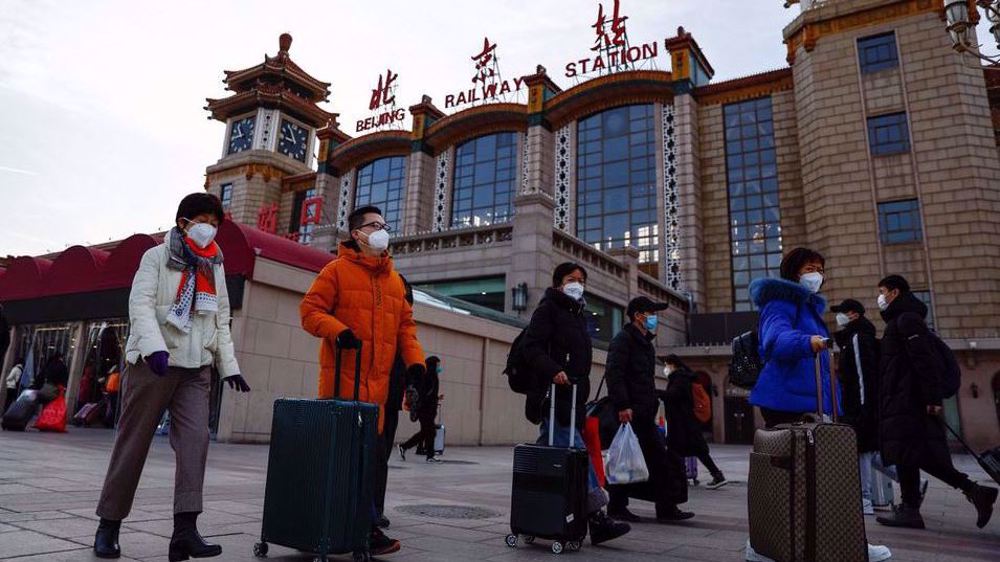
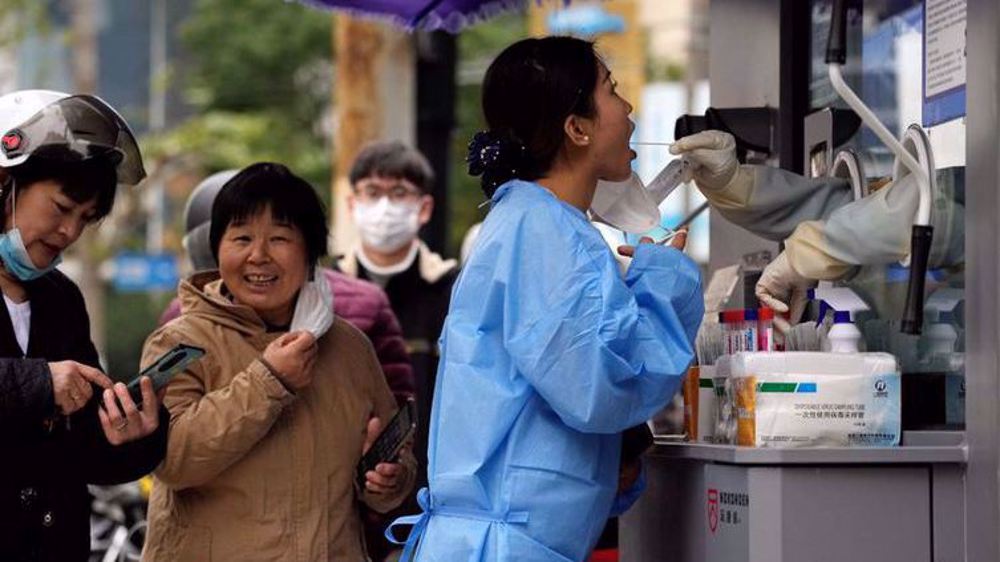
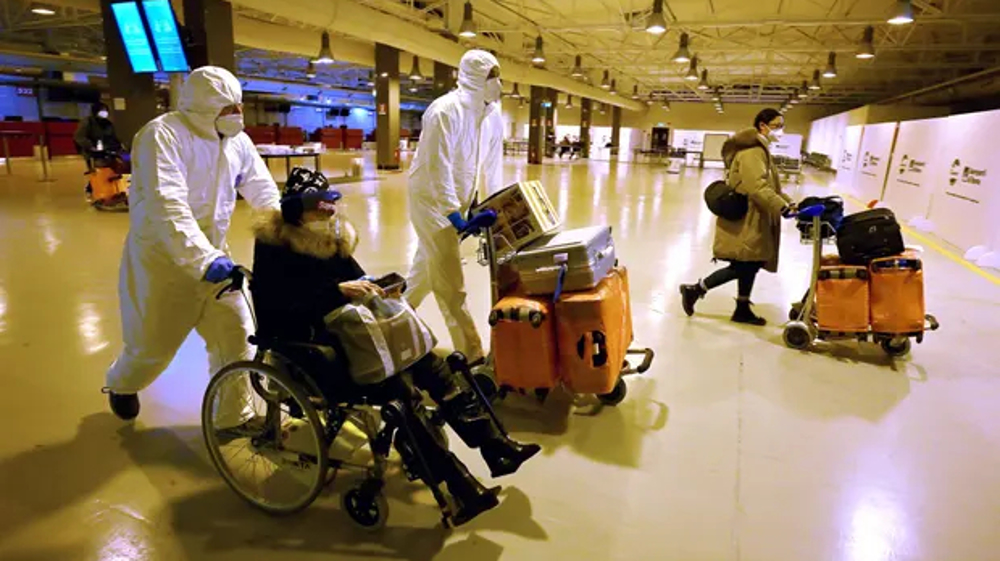






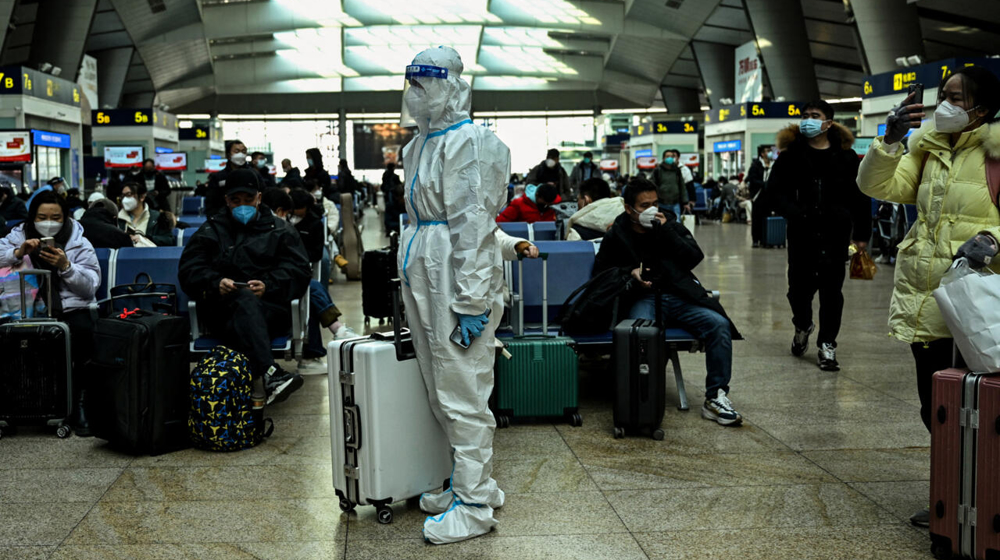
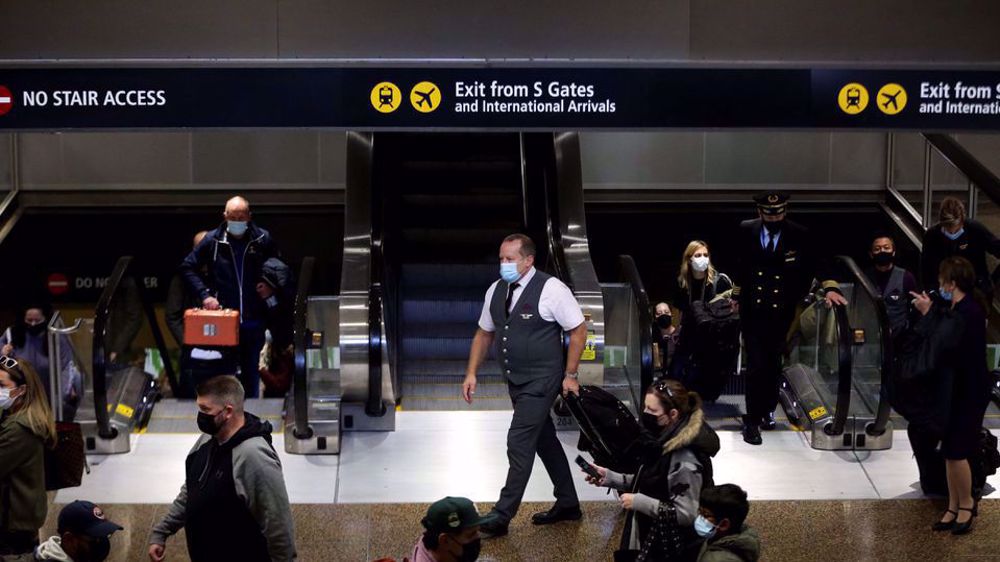

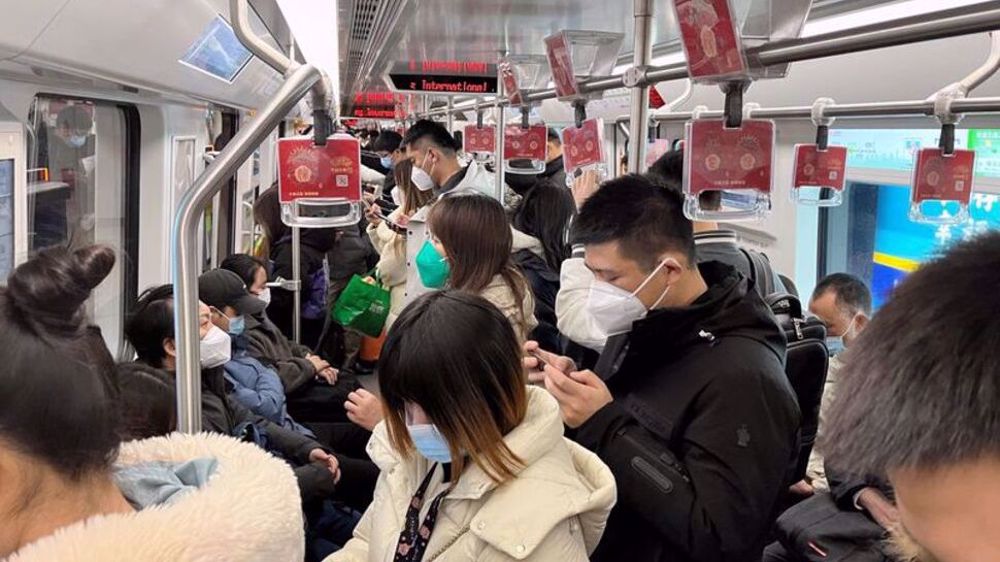

 This makes it easy to access the Press TV website
This makes it easy to access the Press TV website